TUTORIALS
|
Tutorial I: |
|
Title: Security and Privacy of Big Data
in a Cloud Environment |
|
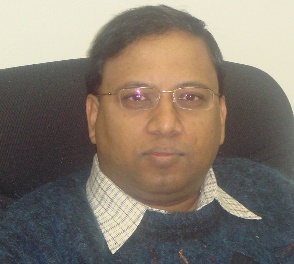
|
Presenter: Prof. Sanjay Kumar Madria, Associate
Chair for Research, Department of Computer Science, Missouri University of
Science and Technology, Rolla, USA
|
|
Abstract |
Security and privacy of big data is of primary concern for many applications. For example, in case of smart meters, data of the consumers must be protected else private information can be leaked. Similarly, due to the cost-efficiency, reduced overhead management and dynamic resource needs, content owners are outsourcing their data to the cloud who can act as a service provider on their behalf. However, by outsourcing their data to the cloud, the owners may lose access control and privacy of data as cloud becomes a third party. By using these data storage services, the data owners can relieve the burden of local data storage and maintenance. However, since data owners and the cloud servers are not in the same trusted domain, the outsourced data may be at risk as the cloud server may no longer be fully trusted. Therefore, data integrity is of critical importance. Cloud should let the owners or a trusted third party to check for the integrity of their data storage without demanding a local copy of the data. Owners often replicate their data on the cloud servers across multiple data centers to provide a higher level of scalability, availability, and durability. However, the data owners need to be strongly convinced that the cloud is storing data copies agreed on in the service level contract, and data-updates have been correctly executed on all the remotely stored copies. In this tutorial, some of these problems will be explored. Some of the topics to be covered include: Security and Privacy Issues in Big Data Management,
Secure Data Processing and Access Control of Big Data in Cloud, Data Integrity Verification of Big Data in Cloud,
and Security and Privacy of Sensing Data for Big Data Applications
|
|
Biography |
Sanjay Kumar Madria received his Ph.D. in Computer Science from Indian Institute of Technology, Delhi, India in 1995. He is a Professor in the Department of Computer Science at the Missouri University of Science and Technology (formerly, University of Missouri-Rolla, USA) and Site Director for NSF Industry/University Center on Net Centric Systems and Software. Earlier he was Visiting Assistant Professor in the Department of Computer Science, Purdue University, West Lafayette, USA. He has published more than 200+ Journal and conference papers in the areas of mobile data management, sensor computing, security and privacy, and cloud computing. He received three best papers awards in IEEE conferences including IEEE Mobile Data Management 2011 and 2012. He has served as a steering committee member, advisory committee member, general-chair, pc-chair in many conferences, and has organized International conferences, workshops and presented keynotes/invited talks/tutorials in the areas of mobile data management. He has given invited talks/seminars in many universities around the world. He also serves as panelists in National Science Foundation, Swedish Research Council, Research Council of Hong Kong, and Research Foundation of Canada. His research is supported by several grants from NSF, DOE, AFRL, NIST, ARL, ARO, Boeing etc. He was awarded JSPS (Japanese Society for Promotion of Science) visiting scientist fellowship in 2006, and AFRL fellowships from 2008 to 2012 by American Society of Engineering Education. He was also awarded NRC senior fellowship at AFRL by National Academies in 2012-2013. He received faculty excellence awards in 2007, 2009, 2011 and 2013 from his university for excellence in research, teaching and service. He is an ACM Distinguished Speaker, and IEEE Senior Member and Golden Core Awardee. |
|
|
|
|
|
|
|
Tutorial II: |
|
Title: The Green Internet of Things |
|
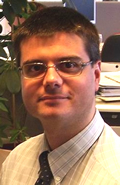
|
Presenters:
Dr. Fabrice Saffre, Etisalat BT Innovation Centre (EBTIC) in Abu Dhabi, UAE
|
|
Abstract |
Every day, we hear about the Internet of Things (IoT) and how it is in the process of revolutionising machine-to-machine (M2M) interaction, allowing a myriad of connected devices to interact and co-operate in order to make our lives richer. In this tutorial, we will explain and illustrate, through theoretical examples, simulations and real-world proof-of-concept experiments, why a true Smart Grid would require an IoT-like, distributed “nervous system” comprised of sensors, relays and actuators to function properly and break the scalability barrier. In particular, we will demonstrate how such a system could play a key part in making renewable sources easier to integrate in the overall energy mix by balancing supply and demand in a much finer and responsive way than is possible today, thereby reducing the average carbon footprint of power generation and making a direct contribution to a more sustainable society. |
|
Biography |
was awarded his Ph.D. in theoretical biology by the Université libre de Bruxelles in 2000. Since joining BT Research on that same year, he has been leveraging his knowledge and understanding of complex systems modelling, distributed intelligence (natural and artificial) and autonomics to develop innovative solutions in Information and Communication Technology (ICT). With over 25 patents and twice as many peer-reviewed publications to his name, he is an internationally recognised expert and took a leading role in several major conferences and collaborative projects in his field. Since the late 2000’s, Fabrice’s interests have also included energy management and sustainability. He launched and led the “Green ICT” research effort at the Etisalat BT Innovation Centre (EBTIC) in Abu Dhabi, UAE , from 2010 to 2013, with a special focus on promoting Demand-Side Management of climate control appliances. Since returning to BT in 2013, he has been in charge of the “Energy and Carbon” strategic research theme, developing a new methodology and control tools to accurately measure and minimise the end-to-end environmental footprint of emerging technologies such as Cloud Services, IPTV and Long-Term Evolution (LTE). |
|
|
|
|
|
|
|
Tutorial III: |
|
Title: Solving complex optimization problems |
|
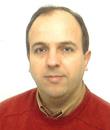 |
Presenter: Prof. El-Ghazali TALBI, Polytech'Lille - University of Lille 1, France, Leader of the team DOLPHIN |
|
Abstract |
This talk provides a complete background on efficient optimization algorithms and presents in a unified view the main design questions for all families of algorithms and clearly illustrates how to solve complex optimization problems in smart grids, networks, logistics and transportation, data mining, ..The key search components of metaheuristics are considered as a toolbox for: Designing efficient optimization algorithms (e.g. local search, tabu search, simulated annealing, evolutionary algorithms, particle swarm optimization, scatter search, ant colonies, bee colonies, artificial immune systems) for optimization problems • Designing efficient algorithms for multi-objective optimization problems • Solving complex optimization problems in smart grids, networks, transportation and data mining. |
|
Biography |
Prof. El-ghazali Talbi received the Master and Ph.D degrees in Computer Science, both from the Institut National Polytechnique de Grenoble in France. Then he became an Associate Professor in Computer Sciences at the University of Lille (France). Since 2001, he is a full Professor at the University of Lille and the head of the optimization group of the Computer Science laboratory (CRISTAL). His current research interests are in the field of multi-objective optimization, parallel algorithms, metaheuristics, combinatorial optimization, cluster and grid computing, hybrid and cooperative optimization, and application to logistics/transportation, bioinformatics and networking. Professor Talbi has to his credit more than 300 publications in journals, chapters in books, and conferences. He is the co-editor of five books. He was a guest editor of more than 10 special issues in different journals (Journal of Heuristics, Journal of Parallel and Distributed Computing, European Journal of Operational Research, Theoretical Computer Science, Journal of Global Optimization). He is the head of the INRIA Dolphin project and the bioinformatics platform of the Genopole of Lille. He has many collaborative national, European and international projects. He is the co-founder and the coordinator of the research group dedicated to Metaheuristics: Theory and Applications (META). He is the founding co-chair of the NIDISC workshop on nature inspired computing (IEEE/ACM IPDPS). He served in different capacities on the programs of more than 100 national and international conferences. He is also the organizer of many conferences (e.g. EA'2005, ROADEF'2006, META'2008, IEEE AICCSA'2010). |
|
|
|
|
|
|
|
Tutorial IV: |
|
New Generation of Big Data Processing Systems: Technologies, Challenges and Opportunities |
|
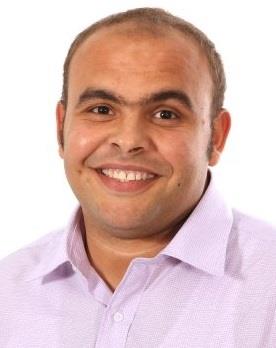 |
Presenter: Dr. Sherif Sakr, College of Public Health and Health Informatics at King Saud bin Abdulaziz University for Health Sciences, Saudi Arabia |
|
Abstract |
The aim of this tutorial to provide an overview of the state-of-the-art of the new generation of big data processing systems. In addition, we will highlight a set of the current open research challenges and discuss some promising directions for future research and development. In particular, the content of this tutorial will be organized into four main sections. The first section will provide an overview of the set of platforms that are focused on providing scalable performance for processing structured and tabular data, collectively labeled as Big SQL systems. The second section will cover the set of systems which have been introduced to target the problem of large scale graph processing. The third section will focus on covering the set of systems which have been introduced to deal with the challenge of processing large scale streaming data. Finally, a discussion of open research challenges and future research directions will be presented in the last section. |
|
Biography |
Dr. Sherif Sakr is an Associate Professor in the College of Public Health and Health Informatics at King Saud bin Abdulaziz University for Health Sciences. He is also a Senior Lecturer in The School of Computer Science and Engineering (CSE) at University of New South Wales (UNSW) and a Visiting Senior Researcher in the Software Systems Research Group at National ICT Australia (NICTA). In 2012, Sherif held a Research MTS position in Alcatel-Lucent Bell Labs. In 2011, Dr. Sakr held a Visiting Researcher with the eXtreme Computing Group (XCG), Microsoft Research Laboratories, USA. He has published more than 75 refereed research publications in international journals and conferences such as: VLDB, SIGMOD, WWW, CIKM, ISWC, DASFAA, ER, BPM, ICWS, JCSS, IEEE TSC, IEEE COMST, JCST, JDM and ACM Computing Surveys. Dr. Sakr authored and edited 4 books, the most recent of them are "Cloud Data Management" by springer and "Large Scale and Big Data: Processing and Management" by CRC press. |
|
|
|
|
Tutorial V: |
|
Title: Privacy and Security Augmented Smart Grid and Microgrid Optimization and Communications |
|
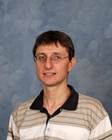 |
Presenter: Dr. Suleyman Uludag, University of Michigan – Flint, USA |
|
Abstract |
The energy sector worldwide has embarked on a transformational process to modernize the over-a-century-old power grid under an umbrella term of the Smart Grid (SG). This vast infrastructural upgrade and operational change involves integration of a variety of advanced digital computing, communications and industrial control technologies. The overarching goal of this tutorial is to present the emerging communications optimization problems and formulations within the smart grid/microgrid research areas in light of the security and privacy perspectives and constraints. The existing literature has mostly taken a silo approach to the communications optimization and security/privacy separately. We introduce the Smart Grid paradigm, extend it with the conceptualization of the microgrids as a new low-voltage distribution system enhanced with distributed generation, renewables, and storage. We provide optimization formulations for various problems in microgrid scheduling, communications, data collection, and control, including optimization of deployment, power consumption, integration of distributed energy sources with a particular attention given to the security and privacy dimensions and aspects. |
|
Biography |
Suleyman Uludag received his Ph.D. from DePaul University, Chicago in 2007. He is an associate professor of computer science at the University of Michigan - Flint. He has served in the TPC of many networking conferences, including ICC, Infocom, Globecom, LCN, WCNC, Broadnets, etc., and reviewer for many journals. The general areas of his research include network quality of service, routing in wireless and wired networks, microgrids, network security, smart grid, and automatic time-series models. He has co-chaired the IEEE LCN Workshop on Smart Grid Networking Infrastructure held in conjunction with IEEE LCN 2010 Conference in Denver, CO. He has been awarded the Lois Matz Rosen Junior Faculty Excellence in Teaching Award in September 2010 at the University of Michigan - Flint. He has also been a Fulbright Scholar (Core Program) at TOBB University of Economics and Technology in Ankara, Turkey during the 2012-2013 academic year. He was a visiting scholar the TCIPG (Trustworthy Cyber Infrastructure for the Power Grid) at the University of Illinois at Urbana-Champaign and the MONET research group of Professor Klara Nahrstedt at UIUC from August of 2013 to August of 2014. TCIPG is the preeminent research center on power grid cybersecurity. Currently, he is visiting TOBB University of Economics and Technology in Ankara, Turkey until the end of August 2015. |
|
|
|
|
|
|
|